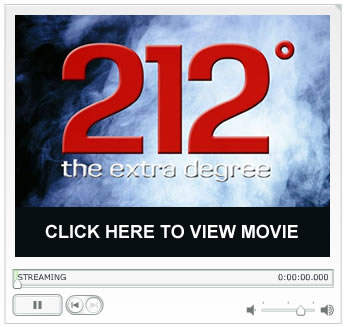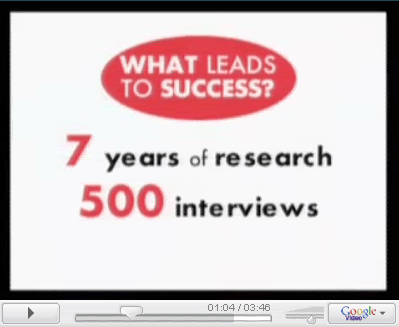Dear Friends,
Today I pose to you this question...
How do you uniquely differentiate yourself from your competitors in ways that benefit the consumer?
This is the question that American Marketers have been asking of themselves for the last 50 years.
The last 50 years in American Marketing has been very easy to summarize.
Each decade seemed to have a theme, a process for differentiating one company from another, one product from another, one service from another.
In the 60's...
it was ADVERTISING. Cute and memorable advertising slogans, "plop, plop, fizz, fizz, oh what a relief it is," Alka Seltzer or "put a tiger in your tank," ESSO.
If you wanted to be different, having a catchy slogan was all you needed to attract attention. And then everyone figured it out and learned how to be cute in advertising until you couldn't differentiate one product or service from the other.
It was a simpler time
In the 70's...
DISTRIBUTION was the theme.
This was the decade when companies and services diverged into segmented arenas. To uniquely differentiate they found that how they sold and distributed their product or service was the unique differentiation.
From shopping malls to catalog sales like Macy's to LL Bean, from high end stores like Nordstrom, to discount stores like Kmart, from department stores to specialty stores like Sports Authority, distribution was the factor.
And then there were 4, 5, or 6, high end anchor department stores at each mall like Saks, Nordstrom, Neiman Marcus and Lord and Taylor or a half a dozen major luxury automobile manufacturers like BMW, Mercedes, Cadillac, and Lincoln. How did they differentiate now?
How did they get the customer to buy their product over the other guy?
Remember, if you can't differentiate your product or service, the last and final battle ground is price. If you have to compete on price, and price alone, you lose!
What's next?
In the 80's...
We were all about QUALITY.
Who had the best quality to uniquely differentiate their product or service?
This began the Quality Service revolution. Who ever had the best product would win the consumer. And as always, one or two took the early lead and then quickly others caught up.
But as natural competition grew a few were left behind to wither and die. Remember the Yugo, Zenith, A & P?
As the quality revolution evolved, a small country, the size of California, began to "eat our lunch." Japan, for years, had been a dime store world competitor and now they own the word "Quality" from technology to cars.
How this happened is another story, but for now Quality was the battle ground.
Then the 90's...
Started something new. New to American Marketers, it was called CUSTOMER SATISFACTION.
It was no longer who had the best quality, for the number of great quality products and services was increasing. The unique differentiation was who
had the highest customer satisfaction?
Who treated the customer the best? Whose customer would gladly return, buy again and tell others?
This was different. The world marketing paradigm had changed. It was no longer "one size fits all" or "let's take what we make and figure out a way to
sell it." The world was now looking at business from the "customer's point of view."
How did companies uniquely differentiate themselves in the 90's? They answered the question "What does the consumer want and how do they
want to be treated?"
Lexus decided to pick up your car for service so you didn't have to bring it to them. Wal-Mart said "hello" at the front door, and "thank you for shopping at Wal-Mart" when you left.
The Gap says, "try them and if they don't fit the way you'd like even after you wash them, return them and get a different size."
LL Bean & Cabelas says, "If our products don't meet your expectations, for any reason, at any time during the life of the product, return it for a full refund, exchange, or credit, no matter what."
I returned a pair of boots, that I'd worn for years just to see what they would do. They apologized and offered a full refund.
The 90's were all about the consumer and their Satisfaction.
Well that brings me to today...
It's about COMMUNITIES.
It is about partnership advocacy groups, it's about communities, networks, alliances, referral groups, sphere of influence networks, relationship marketing, after marketing, database management and client contact programs.
You are reading the process, not just the "3 Minute Referral Tip," to keep in touch, stay in touch with people who know you, like you, trust you, people
who know what you do and how you help others.
60's ADVERTISING
70's DISTRIBUTION
80's QUALITY
90's CUSTOMER
2000 COMMUNITIES
As you can see over the past 50 years, anything that that is replicable or can be quickly copied by another competitor, does not give you any long term security.
As we get back to the original question.
"What uniquely differentiates your product or service from your competitors in ways that benefit the consumer?"
These are questions you may want to ask yourself, now.
Why me?
What makes me unique?
Why me instead of him?
What makes me different?
What makes me special?
What makes me better that the other guy?
Why should people use me rather someone else?
Why me?
What's your answer? Quick, what did you say?
What was your knee-jerk response?
I'm good
I'm experienced
I'm working for a big company
I work for a small responsive company
I speak 3 languages
I take care of my customers
I like what I do
I know the business
I listen
I work hard
I continue to learn
I know how to establish rapport with my clients
I've done this for 20 years
I'm focused on service
All interesting and important qualities but not one uniquely differentiates you from the others who do the exact same thing.
If you're a Realtor, you may advertise in the Homes magazine like the others. You have business cards, so do the others. You may all use the same home inspector, mortgage company, and attorneys. You have access to the same MLS as the others. When you list a house you put a for sale sign in the front with a company name and number, just like the other companies in your marketplace.
I know you are good, but so are others. Even being great isn't enough, so are others.
Whether you're an attorney, a lender, a Realtor, an insurance agent, a financial planner, in car sales, in sanitation, a restaurateur, or in any other business, you eventually will come to the intelligent conclusion that if we are in the same field we all do basically the same thing and it's not necessarily WHAT you do that uniquely differentiates you it is . . .
(I'm going to give you the answer, read it carefully)
IT'S NOT WHAT YOU DO, IT'S TO WHOM YOU DO IT.
This is the era of "COMMUNITIES," people who know you, bought from you, like you, and have an ongoing relationship of some kind with you.
It's not what you do it's to whom you do it.
Look at Harley Davidson. Their stock capitalization is 9 times their gross revenue. Most companies, other than Coke, Pepsi, Microsoft, and a handful of others, have a stock value of a fraction of their gross annual revenue.
Why is Harley Davidson different?
Do they build the best motorcycle?
No, I have owned one and several others.
It is not the best.
Are they cheaper?
No, they are almost twice as much as any other competing motorcycle.
They are not cheaper.
What is it then?
They know who to market to and how to do it.
They developed the best example of "advocate communities" through their intense effort in creating the Harley Owners Group aka HOG. When you buy a new Harley you get a 1 year free membership from the dealer into HOG.
They create, assemble, advertise, market, and build their uniqueness through their customers and suppliers.
They are a brand, unique to all players, just like you!
What happens when a local HOG chapter gets together for a charity ride, fundraiser, or bike week?
Everyone talks about their bike, new modifications, new chrome parts they bought, and through a "community," word of mouth advertising, new and
continuous revenue is generated.
They mastered the art of referrals. They bring their customer communities together and create a sense of belonging. This leads to one of the most prolific advocacy groups ever assembled, the Harley Owners Group.
They managed their brand.
Uniquely differentiating your product or service through marketing, as history shows us, is always changing.
Our goal is to find something that is changeless.
People who know you, like you and trust you do not change their perception of you because the "market" changes. It is the changeless core and provides long term business stability through referral relationships.
It's your new community, It's where you live!
You are a BRAND, but only to the people who know you.
Brand You!
Be distinct or extinct.
Your Trusted Advisor For Life.
Jeffrey Stanton
You read Jeffrey's Journal every week because you, like me want the best for yourself.
Andyou, like me want to build a strong referral based business.
Who else like you, like me loves referrals that you can share this blog with right now?


































No comments:
Post a Comment